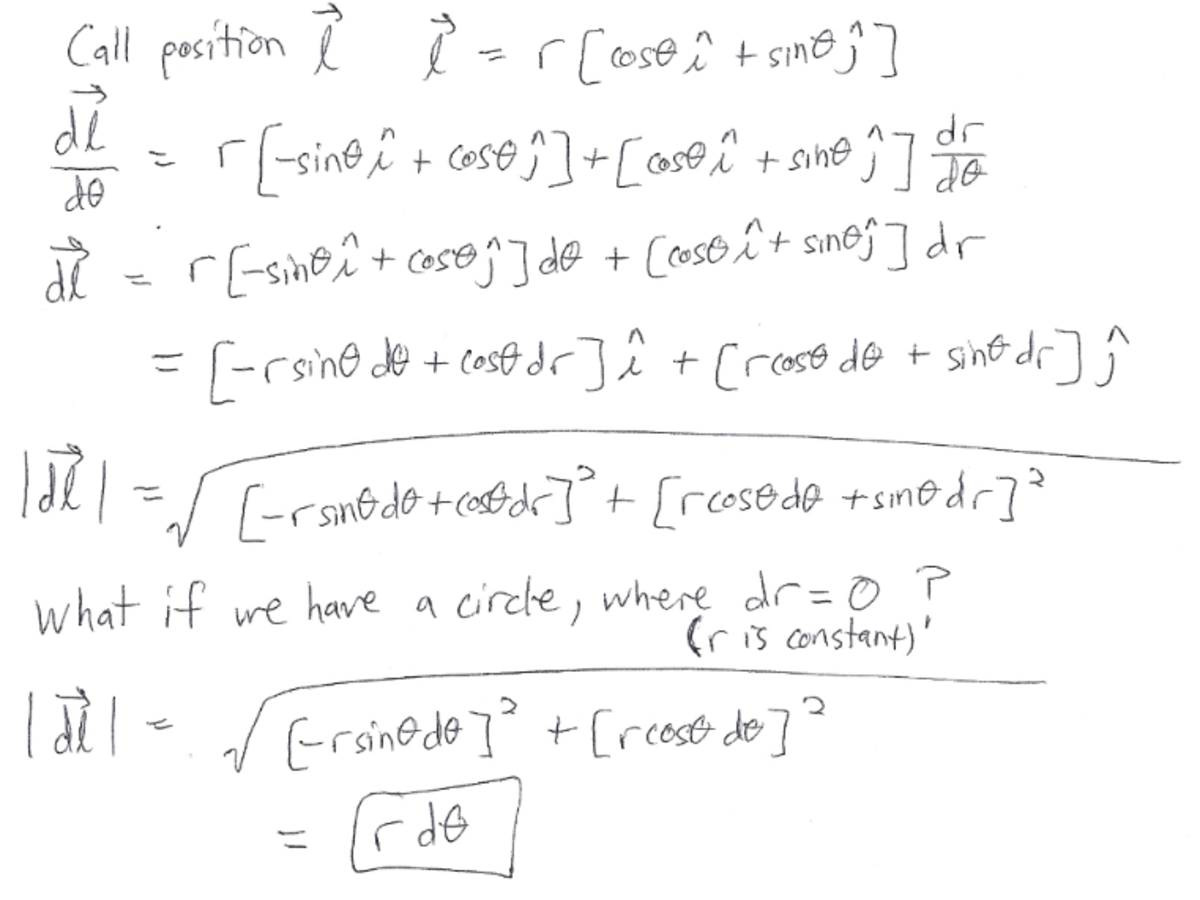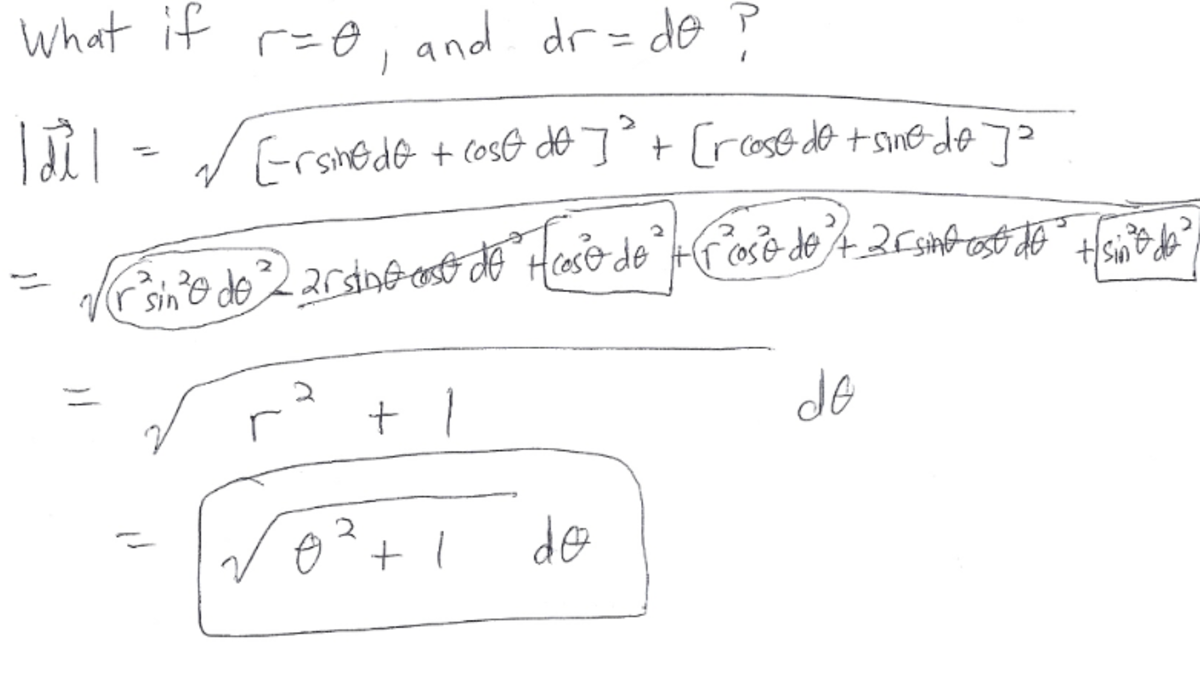Spiral Moment
The spiral object described above exists in the plane and has a linear mass density .
Determine the object's moment of inertia with respect to an axis perpendicular to the plane and passing through the point .
Details and Assumptions: All angles are in radians
The answer is 114.
This section requires Javascript.
You are seeing this because something didn't load right. We suggest you, (a) try
refreshing the page, (b) enabling javascript if it is disabled on your browser and,
finally, (c)
loading the
non-javascript version of this page
. We're sorry about the hassle.
Here's another look at why the differential change in arc length is not simply equal to r d θ .
